Kelly Austin is an Assistant Professor of Sociology at Lehigh. She is in Bududa, Uganda this summer with a group of students pursuing her research in community health. You can see her previous posts here.
I’ve been winding down working on my own research here and I am focusing on enjoying my last few days in Bududa. The rain has also continued, making getting around an adventure. Today was the Lehigh interns’ last day working at the school, PDI Education Center. The Lehigh interns did an amazing job over the last two months. They were quite hard-working and self-sufficient, which made my job easier and allowed me to get more research done. One of the Lehigh interns is studying business. He did great work drafting a formal report on the current status and challenges with the school, the chief one of which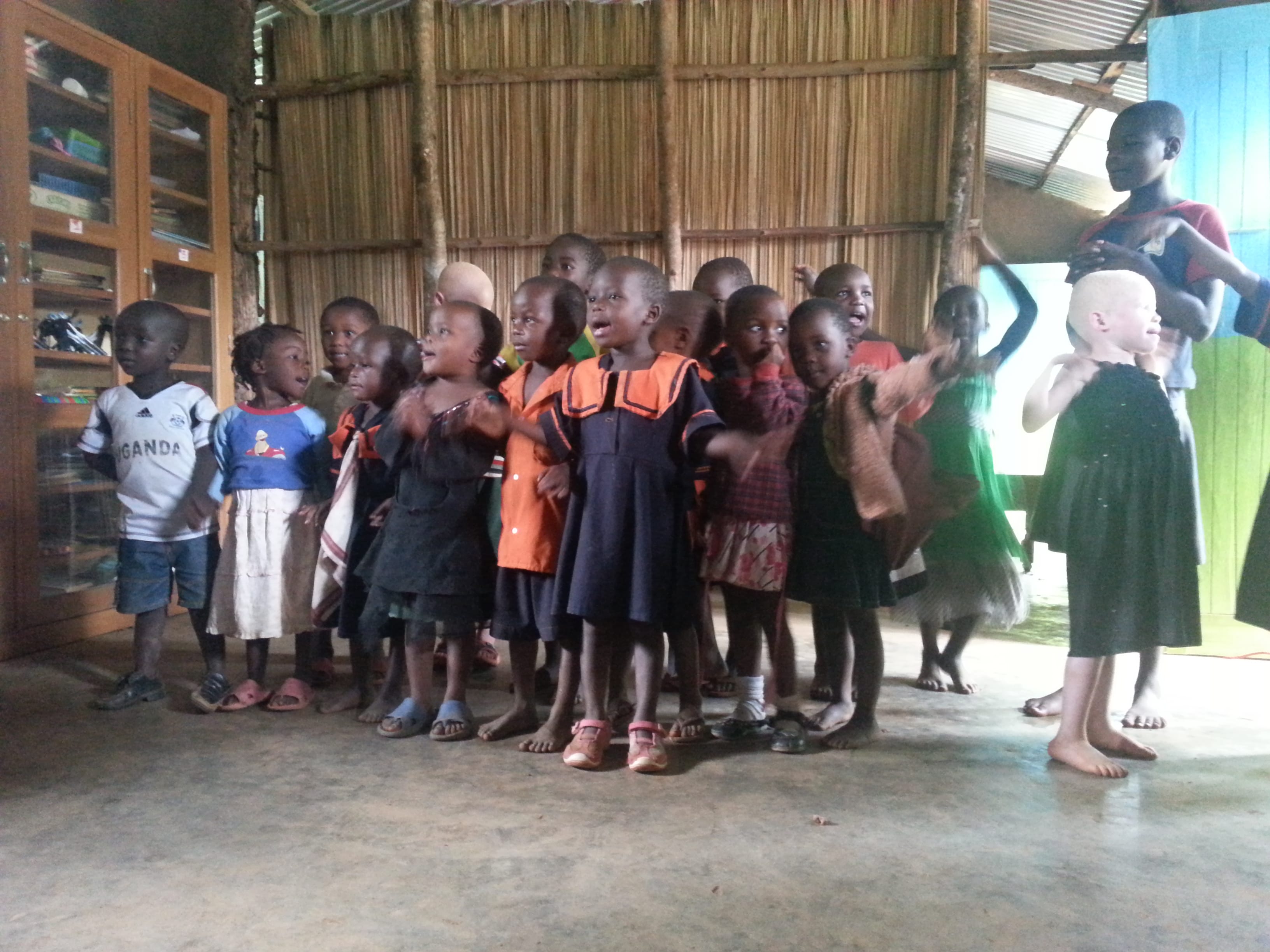 had to do with over-hauling the school budget. The Lehigh student visited about a half dozen other primary schools in Bududa for comparison, and was able to develop relevant recommendations for PDI Education Center concerning staffing, staff payment structures, changes to the school fees, etc. The PDI board of directors already approved his recommendations, so I am sure that his work will have a lasting impact on the school for years to come.
had to do with over-hauling the school budget. The Lehigh student visited about a half dozen other primary schools in Bududa for comparison, and was able to develop relevant recommendations for PDI Education Center concerning staffing, staff payment structures, changes to the school fees, etc. The PDI board of directors already approved his recommendations, so I am sure that his work will have a lasting impact on the school for years to come.
Early in the summer, the Lehigh interns noted that there was a dearth of learning materials on the walls of the classrooms, as well as an absence of the young pupils’ work and art. I was so happy when we visited the school this morning and I saw all of the materials they created with the young pupils featured on every wall. Another highlight was the goodbye and thank you ceremony that the children put on for us. They sang of series of several songs, danced, and gave short speeches. A few of the songs were created just for us, as they had special messages in them. For example, one group of children sang lyrics that said, “We are so sorry you are leaving, will you write a letter to us?” Other songs included messages of “thank you” and they would insert our names in each chorus. After the performance, we played outside with the children. We blew bubbles, which were a huge hit!!! We also rewarded the children with some “sweets” or candies – a very rare treat for many of these children.
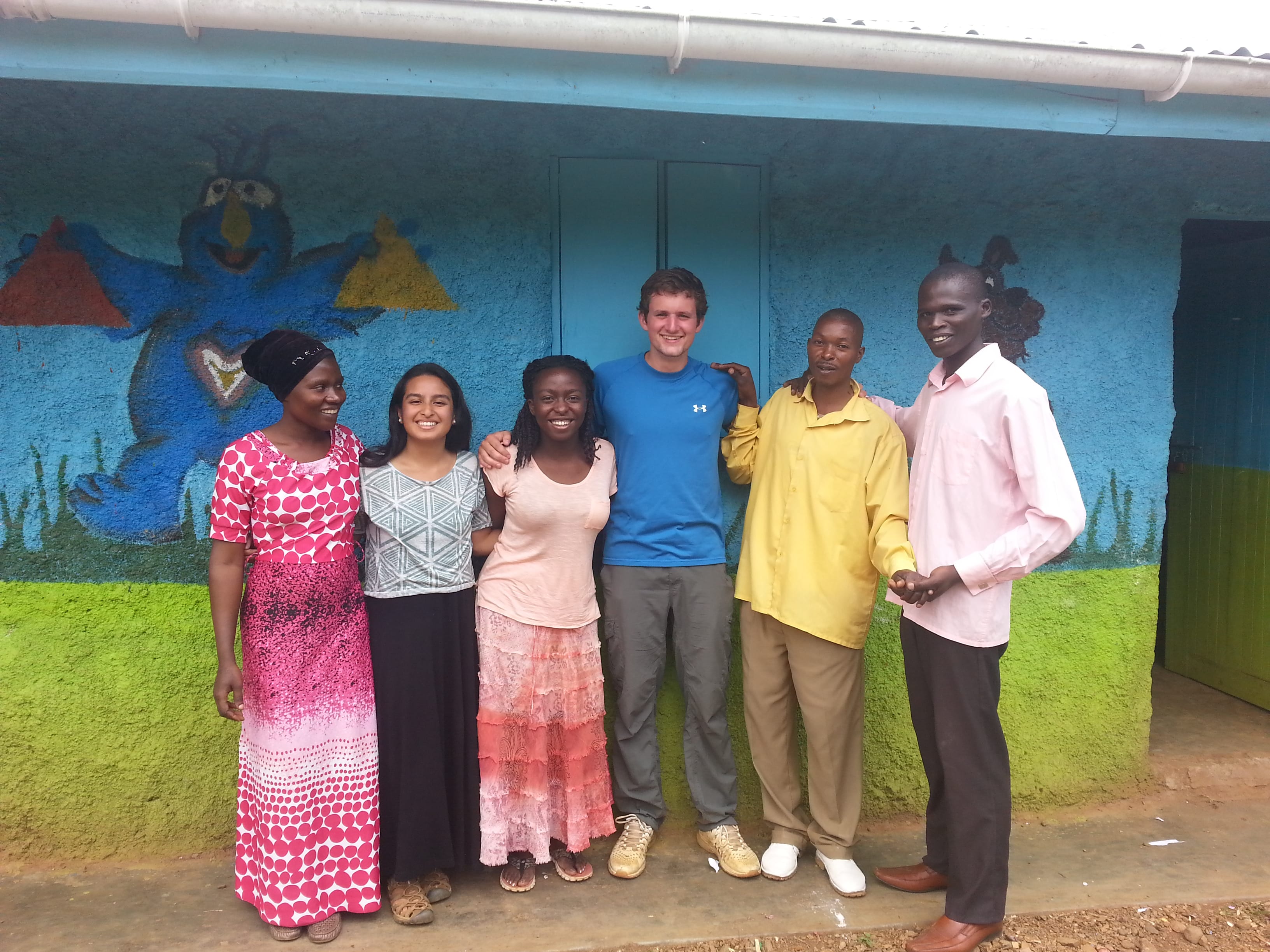


 people get the life-saving interventions they need. Every time another “patient” rolls in, I explain to them that I am not a doctor, but that I would be happy to transport them to the private clinic (and pay for their treatments). So far this year, the students and I have helped over a dozen people (mostly children) get to the private clinic on the other side of the district. There are no clinics in our village of Bubiita, and the nearest clinic is run by the government and faces “stock outs” of medicines for 3 weeks out of every month. So most don’t waste their time walking 2 miles to a public clinic without medicines and instead seek out our assistance, when they can, to get them to the private clinic.
people get the life-saving interventions they need. Every time another “patient” rolls in, I explain to them that I am not a doctor, but that I would be happy to transport them to the private clinic (and pay for their treatments). So far this year, the students and I have helped over a dozen people (mostly children) get to the private clinic on the other side of the district. There are no clinics in our village of Bubiita, and the nearest clinic is run by the government and faces “stock outs” of medicines for 3 weeks out of every month. So most don’t waste their time walking 2 miles to a public clinic without medicines and instead seek out our assistance, when they can, to get them to the private clinic.
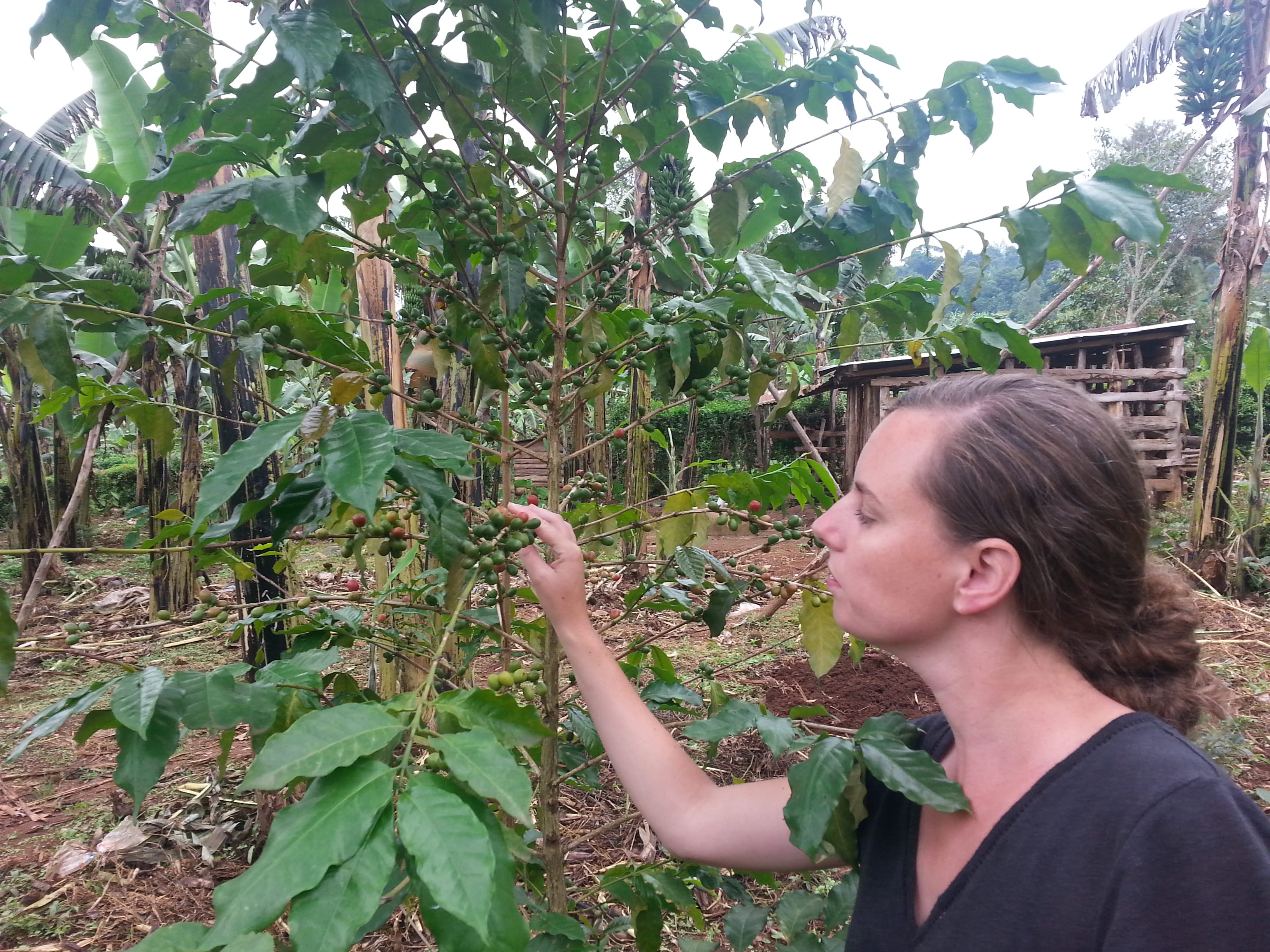

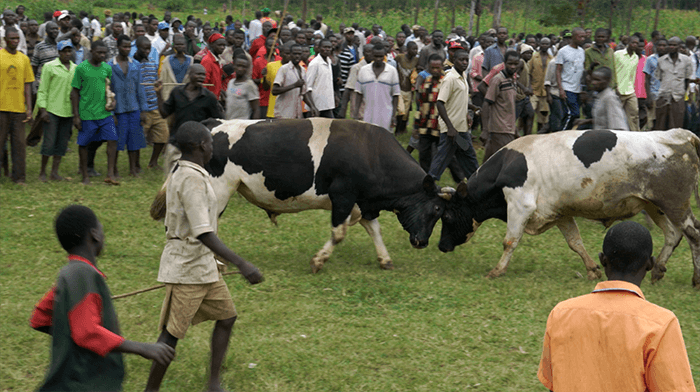 ! Bullfighting is not like we think of it in the US, with a red-clothed matador beckoning a bull, but rather, large bulls fighting each other until one of them runs off, concedes, or is badly injured. It is essentially chaos, with hundreds of people (mostly men and children) on a large pitch (soccer field) running around, yelling, following whichever bulls are in action. The crowd scatters for their lives whenever a bull gets tired of fighting or concedes a contest, taking out whoever is in his way. Luckily, we saw no human injuries, and Peter and Dezz Zaale kept our Mzungu group safe at the top of an embankment behind some very thorny bushes. At one point, the bullfighting settled a bit, so they brought out a female bull to rile the fighting male bulls up. Boy did that work!
! Bullfighting is not like we think of it in the US, with a red-clothed matador beckoning a bull, but rather, large bulls fighting each other until one of them runs off, concedes, or is badly injured. It is essentially chaos, with hundreds of people (mostly men and children) on a large pitch (soccer field) running around, yelling, following whichever bulls are in action. The crowd scatters for their lives whenever a bull gets tired of fighting or concedes a contest, taking out whoever is in his way. Luckily, we saw no human injuries, and Peter and Dezz Zaale kept our Mzungu group safe at the top of an embankment behind some very thorny bushes. At one point, the bullfighting settled a bit, so they brought out a female bull to rile the fighting male bulls up. Boy did that work!
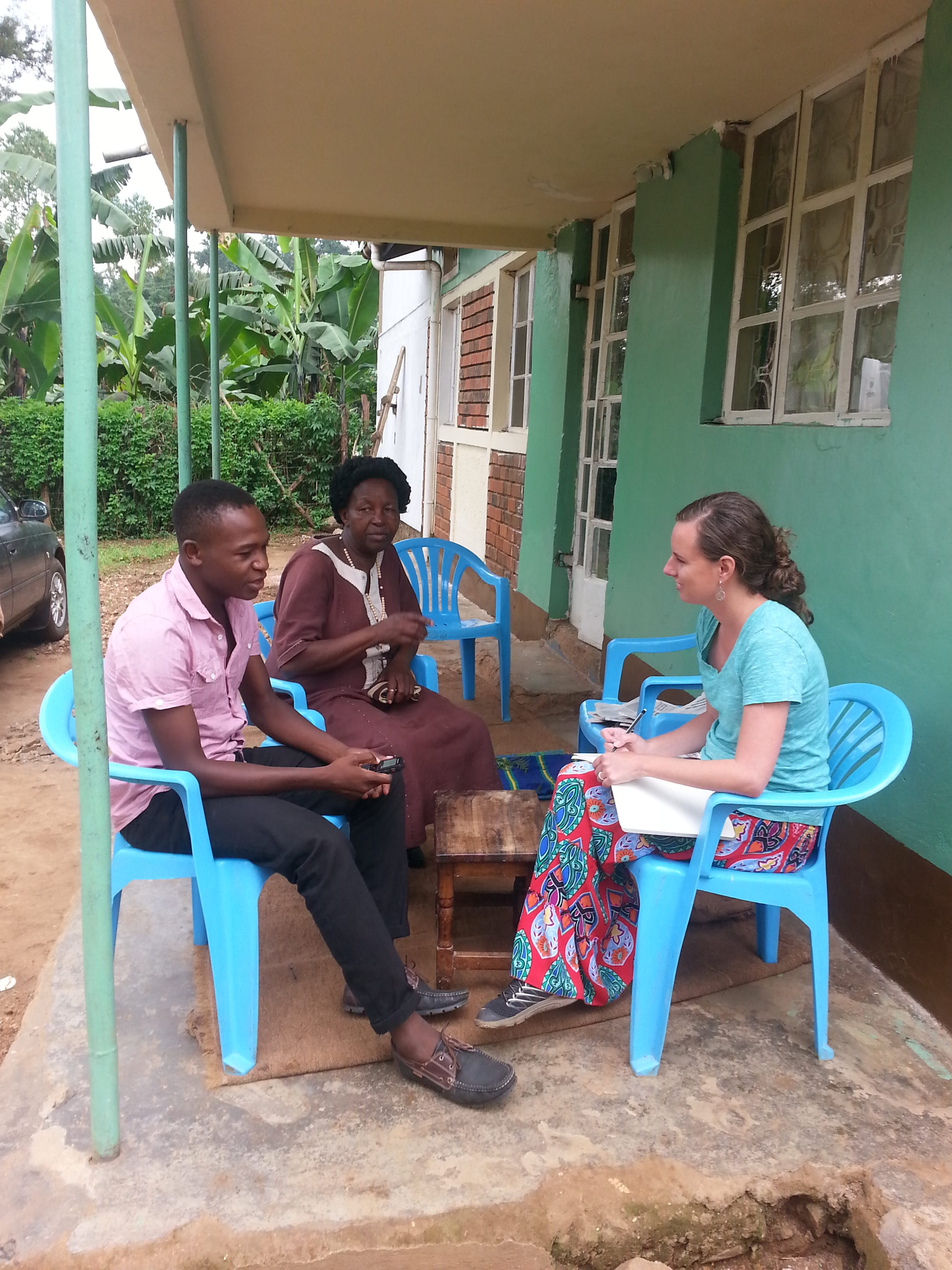 from having brick walls, cement floors, and some paved “sidewalks” that connect the guest rooms, other conditions are a bit more rugged. There is no running water, and the electricity is very spotty. We use pit latrines and take “bucket baths”, where we use water that is harvested from the river to douse ourselves clean (or clean-ish). As I wrote in the last post, the roads are very bad here, you are either fighting dust or mud, and it takes about 1 hour to go ~12 miles. We most often walk to where we need to be.
from having brick walls, cement floors, and some paved “sidewalks” that connect the guest rooms, other conditions are a bit more rugged. There is no running water, and the electricity is very spotty. We use pit latrines and take “bucket baths”, where we use water that is harvested from the river to douse ourselves clean (or clean-ish). As I wrote in the last post, the roads are very bad here, you are either fighting dust or mud, and it takes about 1 hour to go ~12 miles. We most often walk to where we need to be.
 enough to see lions, a leopard, elephants, lots of variety of monkeys, giraffes, hippos, crocodiles, and more birds, butterflies, and antelope than you can imagine.
enough to see lions, a leopard, elephants, lots of variety of monkeys, giraffes, hippos, crocodiles, and more birds, butterflies, and antelope than you can imagine. Cipro, so we are putting the car to good use and taking the student to a hospital in the nearest town, Mbale (one hour away, on an extremely bumpy road). As I sketch out this post, I am sitting in the waiting room of Mt Elgon Hospital waiting for test results. We have been here for about 2 hours, and had to stand in many lines and go back to the cashier between each phase of the process to pay for the next step (e.g. consultation, lab, diagnosis, consultation again, pharmaceuticals). The entire cost was about 100,000 UGX (Ugandan shillings) or about $30. After the process, the student asked what happens to the extremely poor households he sees in the village that would never be able to afford private care. I explained that they would seek care at a government clinic, but these frequently have stock-outs (2-3 weeks per month) where no medications are available. They would be forced to pay out of pocket for the medicines at a local drug shop, which maybe they could or could not afford.
Cipro, so we are putting the car to good use and taking the student to a hospital in the nearest town, Mbale (one hour away, on an extremely bumpy road). As I sketch out this post, I am sitting in the waiting room of Mt Elgon Hospital waiting for test results. We have been here for about 2 hours, and had to stand in many lines and go back to the cashier between each phase of the process to pay for the next step (e.g. consultation, lab, diagnosis, consultation again, pharmaceuticals). The entire cost was about 100,000 UGX (Ugandan shillings) or about $30. After the process, the student asked what happens to the extremely poor households he sees in the village that would never be able to afford private care. I explained that they would seek care at a government clinic, but these frequently have stock-outs (2-3 weeks per month) where no medications are available. They would be forced to pay out of pocket for the medicines at a local drug shop, which maybe they could or could not afford.